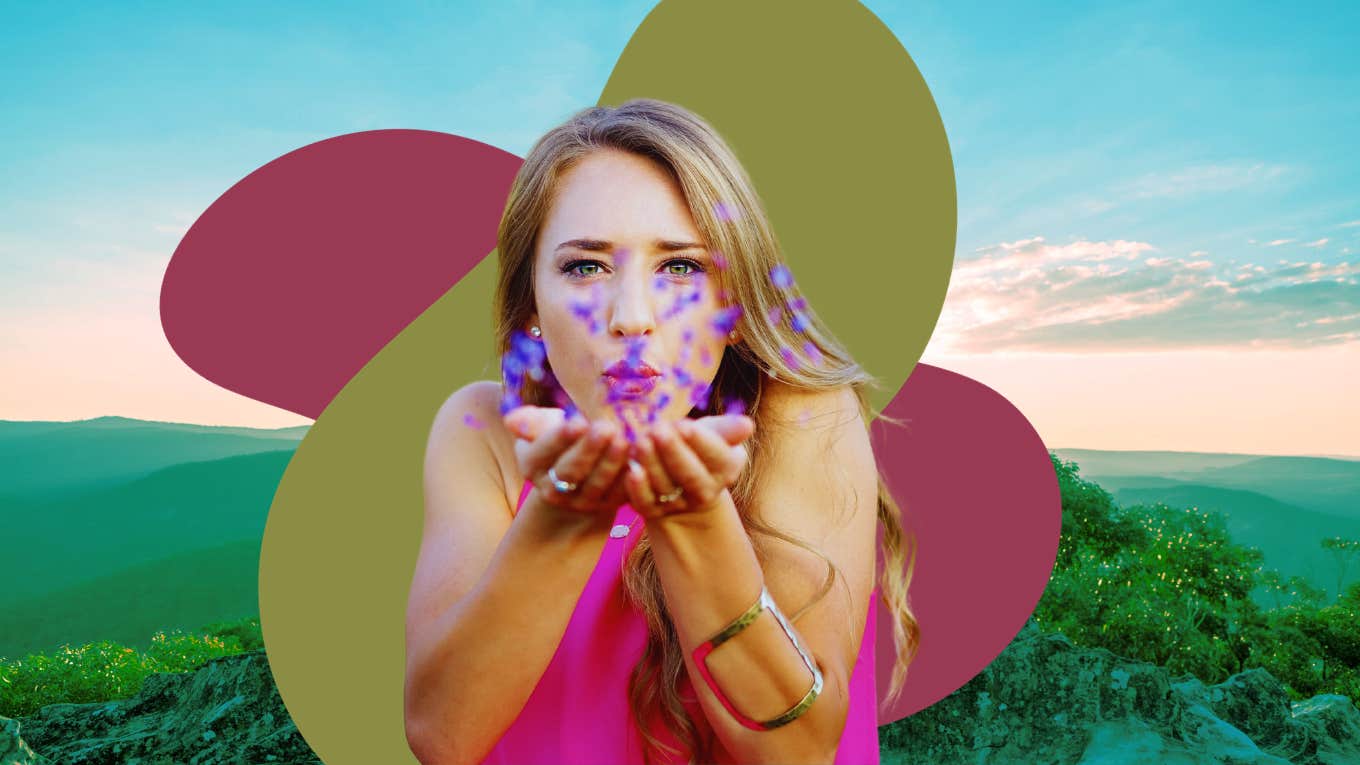The Hopeful 3-Step Process That Figures Out Who You Are & What You Really Want
The ability to reflect and choose our responses is the most powerful tool in building the life of our dreams.
 Pexels / pixabay and Hoy / Pexels via Canva
Pexels / pixabay and Hoy / Pexels via Canva Life can be challenging, filled with ups and downs that make us face our deepest fears and what we truly want. In these moments, we're put to the test, forced to question our beliefs and face parts of ourselves we might not have thought about before.
Without this struggle, we can't truly know who we are.
One of the major stages of our personal growth is learning to notice our own thoughts, reactions, and instincts. This may seem like a little thing, but it's one of the most important tools for creating the life you want.
In the past, maybe you've simply reacted, making choices from a knee-jerk, emotional space. But it is possible to pause in the moment between reacting and acting — and do something different.
That's where the true magic happens.
Seizing Every Opportunity To Grow As A Person
On the podcast Open Relationships: Transforming Together, influencer and author Jordan Reid, of Ramshackle Glam fame, along with co-host Joanna Schroeder, talk about how important it is not to react from a knee-jerk place, which often pushes people away.
That's when host Andrea Miller weighed in with a Yung Pueblo quote that pretty much perfectly sums up the importance of growing past our reactivity and acknowledging how far we've come:
"Your immediate reaction doesn’t tell you who you are, it’s how you decide to respond after the reaction that gives you real insight into how much you have grown. Your first reaction is your past, your intentional response is your present." — Yung Pueblo
Acknowledging that we have evolved from our past selves is not only a testament to our resilience but also a reminder that growth is a continuous process.
Embracing change helps us learn who we truly are and what we want to be. So, how can we do that?
The 3-Step Process At The Heart Of All Personal Growth
1. Understand your first reaction is not an objective truth
Our initial reactions are often deeply ingrained responses shaped by our past experiences and upbringing. It's crucial to recognize that these knee-jerk reactions may not align with our present selves, nor do they necessarily serve as the best indicator of what you should do next.
The way we instinctively respond to situations is a product of conditioning, but it doesn't define our true essence.
Take a moment to reflect on your initial reactions. Simply observe them. Talk to yourself about them if it's helpful, and say things like, "This is how I'm feeling now, but that doesn't necessarily mean it's truth" or "This is how I'm feeling right now, but that doesn't mean I have to react to this initial feeling. I have time and space to think about what I'm going to do next."
Consider how your past has influenced your gut responses. Understanding that these reactions are not indicative of your current self is the first step toward embracing personal growth.
2. Take a beat and think about what you want and who you want to be
Before allowing your initial reaction to dictate your response, take a pause. Engage in conscious thought, allowing yourself the opportunity to look at the situation objectively. Thinking before reacting empowers you to choose how you respond, rather than giving in to instinctive behavior.
By interrupting the automatic response pattern, you gain control over your actions. This step is crucial in the process of self-discovery because it separates your present self from conditioned responses, giving you the freedom to express your authentic identity.
From there, envision how you'd like to respond in this situation or to this trigger. Would you like to be the person who rises above petty problems? Envision what that would look and feel like. Would you like to be the person who confronts conflict instead of running away? Envision how that would look and feel.
3. Recognize your growth.
Once you've recognized that your initial reaction does not define you and have taken the time to think before responding, it's time to acknowledge your personal growth. Realize that the ability to reflect and choose your responses is a sign of maturity and self-awareness.
Concluding that your first reaction is not who you necessarily are, and intentionally shaping your responses demonstrates your evolution as a human being. Embracing this growth fosters a deeper connection with your true self, promoting a positive mindset that propels you forward on your journey of self-discovery.
Life is a journey of continuous growth, and understanding who we are in the present moment — balanced with who we'd like to be in the future — is a crucial aspect of this voyage.
By following the 3-step process of recognizing that your initial reactions do not define you, taking a moment to think, and realizing your growth, you can navigate the complexities of life with authenticity. Embrace the opportunity to rediscover and celebrate the person you are becoming, and let the journey of self-discovery unfold with every step you take.
Deauna Roane is a writer and the Editorial Project Manager for YourTango. She's had bylines in Emerson College's literary magazine, Generic, and MSN.
